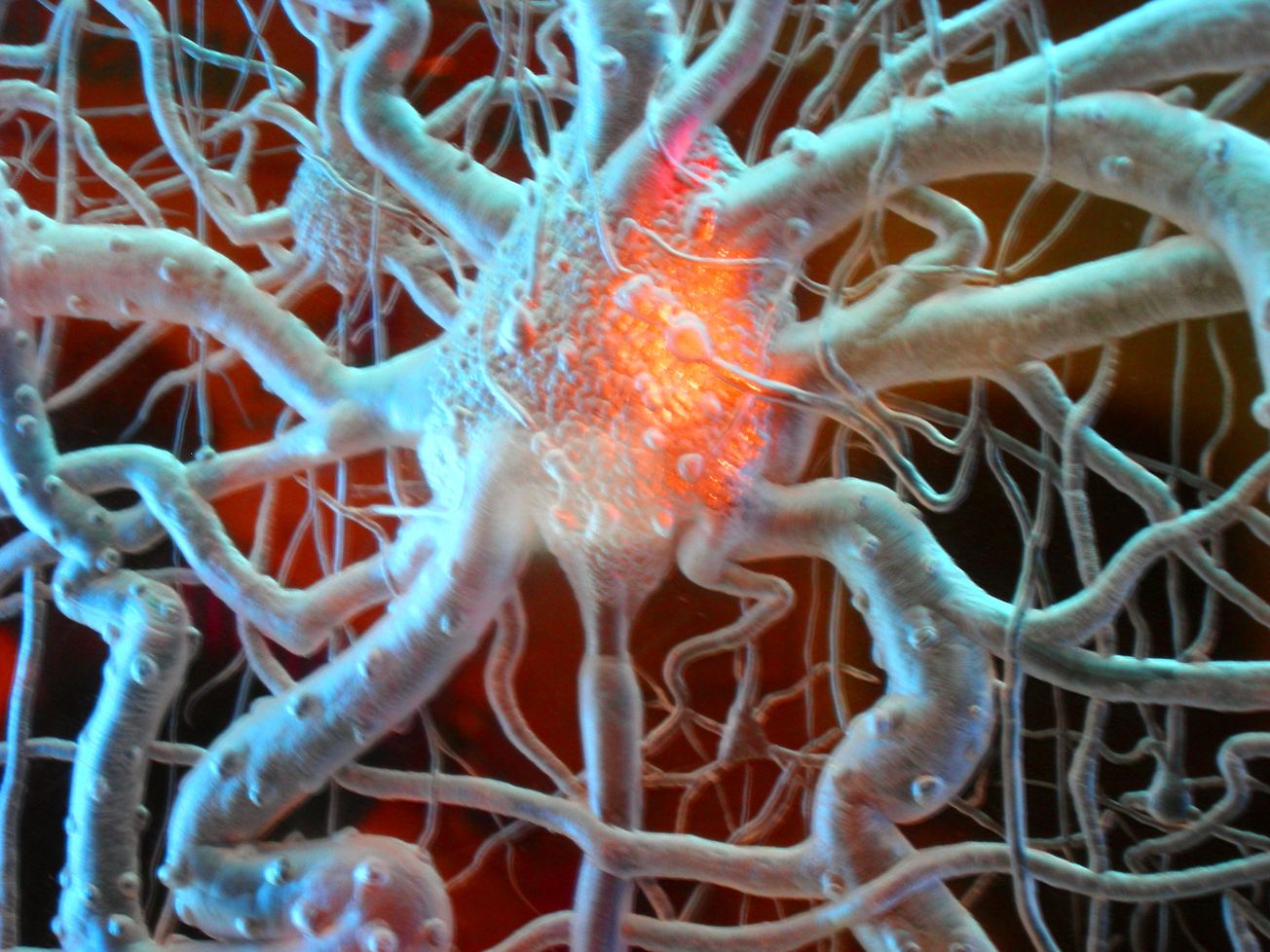By Lucas Mockeridge, Second Year, Computer Science
Scientists have used AI to uncover the structure of a vital group of proteins. The discovery might help fight everything from cancer to Alzheimer’s disease. Whilst it may save mankind from disease, experts fear AI will be the cause of humanity’s death.
Earlier this month, an international research team used AI to model a bundle of proteins called the Commander complex. The group of 16 proteins help cells mount an immune response and adapt to changes in external conditions. It also acts as a ‘postal worker' in cells.
“Just as the postal system has processes to transport and sort cargo, so cells in our body have molecular machines that transport and sort proteins,” explains the University of Queensland’s Professor Brett Collins.
“Cargo transport is all about getting the right parcels to the right destination at the right time – in cells, the Commander complex controls this system to ensure the right amount of protein is delivered to the right place in the cell.”
Researchers have used artificial intelligence to build a 3D model of key cell components to better understand #dementia and infectious diseases including #COVID19. Here is the Commander protein complex - the first time it has been visualised.
— Institute for Molecular Bioscience (@IMBatUQ) May 11, 2023
🔗 https://t.co/zKhLUtSRUk pic.twitter.com/XmORfe1gbS
Proteins within the complex have been connected to a myriad of diseases including hepatitis, Parkinson’s disease, and several cancers. The complex has also been linked to the transport of the amyloid protein in Alzheimer’s disease.
Led by the University of Bristol’s Professor Pete Cullen, the team built the model by combining advanced electron microscopy with AlphaFold, an AI system from London-based Google DeepMind. According to Professor Cullen, a complete mapping would not have been possible, even two years ago, without these new technologies.
AlphaFold predicts the 3D structure of a protein using only its sequence of amino acids. In 2020, it had become so accurate that it was believed to have solved the problem of predicting protein structure, which had stumped scientists for more than half a century.
Before AlphaFold, scientists had 3D structures for only 17% of the proteins in the human body. They now have predictions for not only every protein expressed by humans, but nearly every protein known to man.
Today in partnership with @emblebi, we’re releasing predicted structures for nearly all catalogued proteins known to science, which will expand the #AlphaFold database by over 200x - from nearly 1 million to 200+ million structures: https://t.co/GjVES2pBFY 1/ pic.twitter.com/lp8qunbUiX
— Google DeepMind (@DeepMind) July 28, 2022
“Knowing the 3D shape of these proteins helps us understand how they function, why mutations cause disease, and how to design drugs to target them in the future,” notes Professor Collins.
AlphaFold can also be used to form larger AI systems that design drugs themselves. For instance, researchers from the University of Toronto paired AlphaFold with other AI tools, yielding a potential treatment for primary liver cancer in only 30 days. Once these AI systems are married with robotic labs, AI will be discovering new treatments by itself.
Before AlphaFold can make predictions, it needs to have studied the patterns in 170,000 known protein structures. AlphaFold uses algorithms called neural networks to recognise these patterns. In fact, it uses a specific type of neural network that is also powering the current crop of AI chatbots, including ChatGPT.
Whilst AI is helping to save lives at the moment, experts believe it could lead to the end of human life altogether. Recently, a group of leading AI researchers and executives, including the head of Google DeepMind, signed an open letter warning that AI poses a “risk of extinction” comparable to pandemics and nuclear war.
We’ve released a statement on the risk of extinction from AI.
— Center for AI Safety (@ai_risks) May 30, 2023
Signatories include:
- Three Turing Award winners
- Authors of the standard textbooks on AI/DL/RL
- CEOs and Execs from OpenAI, Microsoft, Google, Google DeepMind, Anthropic
- Many morehttps://t.co/mkJWhCRVwB
The letter follows a statement signed by another group of AI experts and tech leaders, including Elon Musk and Apple co-founder Steve Wozniak, calling for a six-month pause in the development of more powerful AI. Musk has since stressed that now is the time to regulate AI before it is “in control”.
AI companies are also asking for regulation. OpenAI has called for regulation that mirrors that of nuclear energy, suggesting a global watchdog is required. However, the ChatGPT maker does not support the latest draft of the EU’s AI Act, the first attempt at AI regulation. Its CEO said the EU would be “over-regulating”.
Professor Cullen’s research serves as a reminder of the good that AI can do. With effective regulation, AI could prove to be humanity’s greatest invention. Though without any safeguards, it could also be its last.
Featured image: Flickr / Michael









